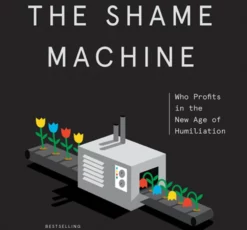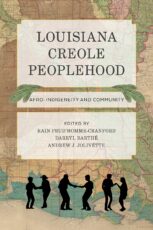
0:08 – Some community announcements:
- The Leonard Peltier Defense Committee is currently on a west coast tour to bring awareness to current updates of Leonard’s case and the call for executive clemency.
- Dr. Mutulu Shakur, who has been imprisoned for 60 years and is suffering from stage-4 cancer, was denied mandatory parole by the U.S. Parole Commission late last month. This is the ninth time Dr. Shakur has been denied parole by the USPC, and the second time he has been denied mandatory parole. Dr. Shakur’s legal team will be appealing this decision, and along with Dr. Shakur, Families and Friends of Mutulu Shakur will be exploring all possible next steps in the struggle for his immediate release.
0:10 – We explore the power of shame and shaming in the context of social media, and how it affects our behavior, and young people in particular, with New York Times bestselling author Cathy O’Neil, a data scientist whose latest book is The Shame Machine: Who Profits in the New Age of Humiliation.

1:08 – Yesterday, a Palestinian journalist was killed in the West Bank by Israeli military forces – the second in less than a month. Eyewitnesses on the ground told reporters that Ghufran Hamed Warasneh was on her way to work as a journalist at a radio station when she was shot. We are joined by Nora Barrows-Friedman (@norabf), editor of the Electronic Intifada and host of the podcast, The Brief, to discuss this latest case as well as its implications for Palestinian journalists.
1:34 – We explore the indigenous cultural history of the Louisiana creole people with Andrew Jolivette, Professor and Department Chair of ethnic studies at UC San Diego whose latest book is Louisiana Creole Peoplehood: Afro-Indigeneity and Community.
1:46 – Recent investigations by KTVU and the Marshall Project show that police dogs are often deployed on people who are suspected of minor crimes. But while they can seriously injure people and leave lasting trauma, California state laws are note clear on when it’s ok to use police dogs, and they’re not always under an officer’s control. We feature this story from reporter Katherine Monahan, who spoke to two victims of police dog attacks. Please note that this story has descriptions and audio of violent police dog attacks.

